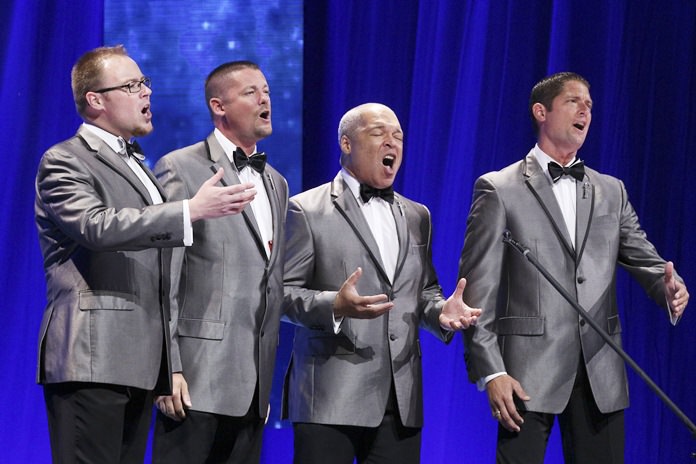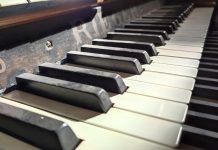Nashville, Tenn. (AP) — If the sound of barbershop harmony invokes Norman Rockwell images of white men singing vaudeville-style songs in straw hats, organizers of the Barbershop Harmony Society are trying to update that image.

The society, which dates back to 1938, has been promoting research into the African-American origins of four-part a cappella singing and encouraging the spread of the musical style beyond North America. This year, the group recognized Grammy-winning black gospel a cappella group The Fairfield Four as honorary lifetime members.
The society held its annual international convention in Nashville, Tennessee, earlier this month, where about 6,000 people watched or competed. Barbershop Harmony Society CEO Marty Monson said the group has been working to break down cultural barriers and preserve a lost history.
“Really where it took its form was in the 1800s in the African-American barbershops, somewhere between Nashville, Memphis and New Orleans,” Monson said. “We’re really focusing on giving credit where credit is due.”
Current members of the Fairfield Four, formed in Nashville in the early 1920s, worry there may not be another generation of African-American singers interested in learning how to sing in harmony.
“It is becoming a lost art in terms of what we are seeing immediately,” said singer Bobbye Sherrell. “It’s scary.”
While the society’s membership is still primarily white, the group has made progress expanding its outreach to youth groups and overseas affiliates, thanks to movies like “Pitch Perfect,” the TV series “Glee” and TV competitions like “The Sing-Off.”
Competition in recent years has been an example of the changing sound of barbershop. In 2012, a Swedish quartet called Ringmasters won the top prize. The Musical Island Boys, with members from New Zealand and Australia, became the international champions in 2014.
Members of Signature, a multicultural quartet from South Florida, say the brotherhood spirit of the all-male quartet is still relevant. Lead singer Daniel Cochran and tenor Will Rodriguez watched a march in downtown Nashville in the aftermath of the fatal shootings of black men by police in Louisiana and Minnesota and the killing of five police officers in Dallas.
They sang “A Change is Gonna Come” by Sam Cooke during one of the earlier rounds of the competition and placed fourth in the finals.
“The song has a lot of purpose and meaning to us specifically, not just because our lead is African-American but because we can feel it,” Rodriguez said.
Swedish quartet Lemon Squeezy, which placed second in the international quartet competition, represents a younger generation that’s bringing its own style and interests to the genre. The four lanky young singers say they were partly inspired to try barbershop after watching an episode of “The Simpsons.”
“I mean, as Swedes, I’d say we are prohibited to wear strawhats,” joked bass singer Martin Jango.
Members of Main Street embrace their “dorky barbershop” image with their boater hats, vests and bow ties, but have gotten a lot of clicks on YouTube with comedic medleys of pop hits by Pink, ‘N Sync and Meghan Trainor.
“Most of our material is from the early 1900s as far as classic barbershop,” said lead singer Tony DeRosa. “But as time marches on, so does the material that is going to be sung and thought of as barbershop material.”




